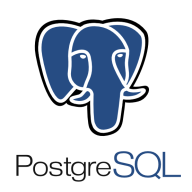

PostgreSQL and MongoDB Enterprise Advanced are prominent competitors in the database management system category. PostgreSQL seems to have the upper hand when it comes to SQL compliance and support for complex queries, while MongoDB leads with its flexibility and scalability in handling unstructured data.
Features: PostgreSQL offers full ACID compliance, advanced SQL query capabilities, and robust adherence to SQL standards. It also provides asynchronous commit and is known for its scalability. MongoDB, on the other hand, excels with flexible schema design, developer-friendliness, and seamless storage of unstructured data, paired with strong replication and scalability features.
Room for Improvement: PostgreSQL may face challenges with large-scale read operations and lacks features like multiple storage engines. It could also improve installation simplicity and analytics functionality. MongoDB might enhance indexing and make transitions easier for SQL users. Security features specific to enterprise needs can also see advancements.
Ease of Deployment and Customer Service: PostgreSQL provides cost-effective deployment through its open-source nature with community support, yet lacks centralized professional support. MongoDB Enterprise Advanced offers structured professional support and is adaptable to various environments, including cloud, which is beneficial for enterprises seeking comprehensive solutions.
Pricing and ROI: PostgreSQL presents a zero-cost licensing model, positioning itself as a budget-friendly choice for businesses not needing dedicated support. MongoDB Enterprise Advanced's subscription models imply higher pricing but may offer a favorable return on investment for projects requiring its advanced scalability and flexibility features.
| Product | Market Share (%) |
|---|---|
| PostgreSQL | 14.3% |
| MongoDB Enterprise Advanced | 5.1% |
| Other | 80.6% |
| Company Size | Count |
|---|---|
| Small Business | 35 |
| Midsize Enterprise | 13 |
| Large Enterprise | 38 |
| Company Size | Count |
|---|---|
| Small Business | 57 |
| Midsize Enterprise | 26 |
| Large Enterprise | 46 |
MongoDB Enterprise Advanced is a comprehensive platform renowned for its scalability, user-friendliness, and high performance, underpinned by its flexible document-based storage and open-source model. JSON compatibility, clustering, and security elevate its standing among professionals.
The platform facilitates efficient data management through developer-friendly tools and a strong aggregation framework. MongoDB’s no-schema requirement, supported by community expertise, underlines its adaptability. While its sharding capabilities and affordably support large data volumes, there are aspects such as security enhancement and enterprise tool integration that need attention. Indexing and query optimization pose challenges, alongside high costs. Improvements in analytics and UI could advance its infrastructure further.
What are the key features of MongoDB Enterprise Advanced?Industries leverage MongoDB Enterprise Advanced for significant roles in data storage within IoT platforms, healthcare apps, public service monitoring, and big data analytics. Companies in logistics and telecommunications find it instrumental for business process management and video content management, benefiting from its seamless integration and unstructured data support.
PostgreSQL is a versatile and reliable database management system commonly used for web development, data analysis, and building scalable databases.
It offers advanced features like indexing, replication, and transaction management. Users appreciate its flexibility, performance, and ability to handle large amounts of data efficiently. Its robustness, scalability, and support for complex queries make it highly valuable.
Additionally, PostgreSQL's extensibility, flexibility, community support, and frequent updates contribute to its ongoing improvement and stability.
We monitor all Open Source Databases reviews to prevent fraudulent reviews and keep review quality high. We do not post reviews by company employees or direct competitors. We validate each review for authenticity via cross-reference with LinkedIn, and personal follow-up with the reviewer when necessary.